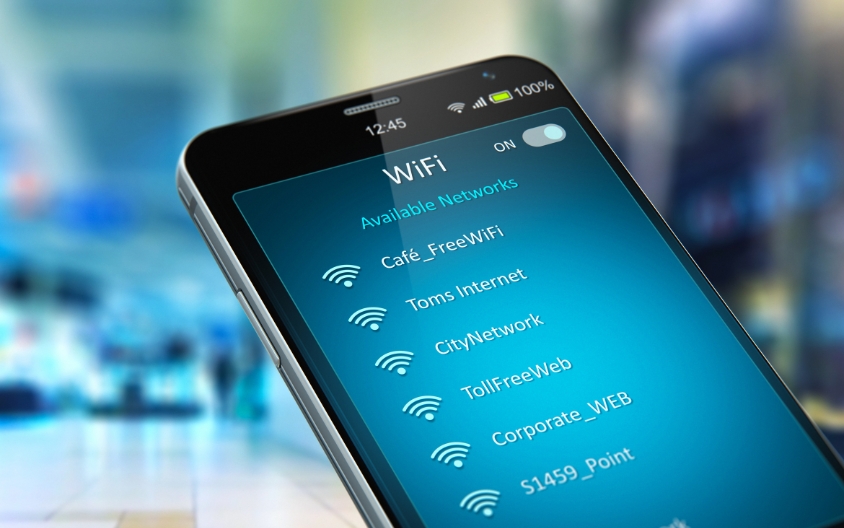Alongside employing modern MFA, here are five additional safe travel tips to help safeguard your personal account information during this holiday season:
Using public Wi-Fi networks in densely populated areas like airports and train stations can be convenient but also poses various risks. Research conducted by NordVPN has revealed that for every four travelers, one person has fallen victim to attacks while using public Wi-Fi abroad—hence, one of the best ways to protect oneself is to avoid using public Wi-Fi altogether.
To ensure devices don't connect to the first available Wi-Fi network without consent, users can disable the automatic Wi-Fi connection feature in settings. This helps reduce exposure to potential malicious agents and provides more control over one's network settings on the phone.
Using a phone as a mobile hotspot means there is little to no risk of connecting to fraudulent networks. This is an excellent option when not wanting to rely on public Wi-Fi.
 Not connecting to unidentified Wi-Fi networks
Not connecting to unidentified Wi-Fi networks
2. Turn off your devices when not in use
Power down (not just in sleep or hibernate mode) your computer and phone during security checks at airports, customs, or when not directly monitoring these devices. This allows users to maximize the hardware security features of the devices, such as whole drive encryption, which helps safeguard data if the device is compromised.
3. Avoid connecting to unknown charging ports
Avoid directly using public USB or Lightning ports or USB devices from untrustworthy sources, such as hotels. While such network attacks aren’t common, they can still occur. Users can employ data blocking adapters or external charging hubs to limit exposure to harmful ports and cables.
4. Limit screen lock view modes
Many of us unintentionally share more personal information than intended on our mobile device's lock screens, such as text message content and calendar appointments. By adjusting settings, users can selectively share high-level information to control what's accessible on their phone without unlocking it. This could restrict the amount of information someone passing by and snooping on the phone can gather in a few seconds from their lock screen.
5. Check Bluetooth connections
The best practice is always to ensure Bluetooth is turned off when not in use. When left on, it enables bad actors to discover previously connected devices and potentially gain access to a user's device.
Users can set their device to "hidden" instead of "discoverable" in Bluetooth settings, preventing unknown devices from finding their Bluetooth connection. Also, ensure to adjust Airdrop settings to "contacts only" to prevent unknown devices from sharing content in public mode.
Source: Yubico
Establishing habits that protect personal information and control access to electronic devices from unknown networks will help minimize the risk of becoming a target for cybercriminals. Particularly, users need to build awareness and enhance strong multi-factor authentication security to prevent authentication attacks and account theft. YubiKey stands as one of the leading and convenient solutions for security anytime, anywhere. Choosing reputable solution providers is the first step to ensuring user information security. HPT is currently an official partner of Yubico in Vietnam, providing genuine YubiKey products to meet users' needs.
Learn more about YubiKey Passwordless Authentication Solution here.
Contact HPT now for expert advice and special offers in December.
Contact Information:
Email: [email protected]
Phone: 028 38 266 206